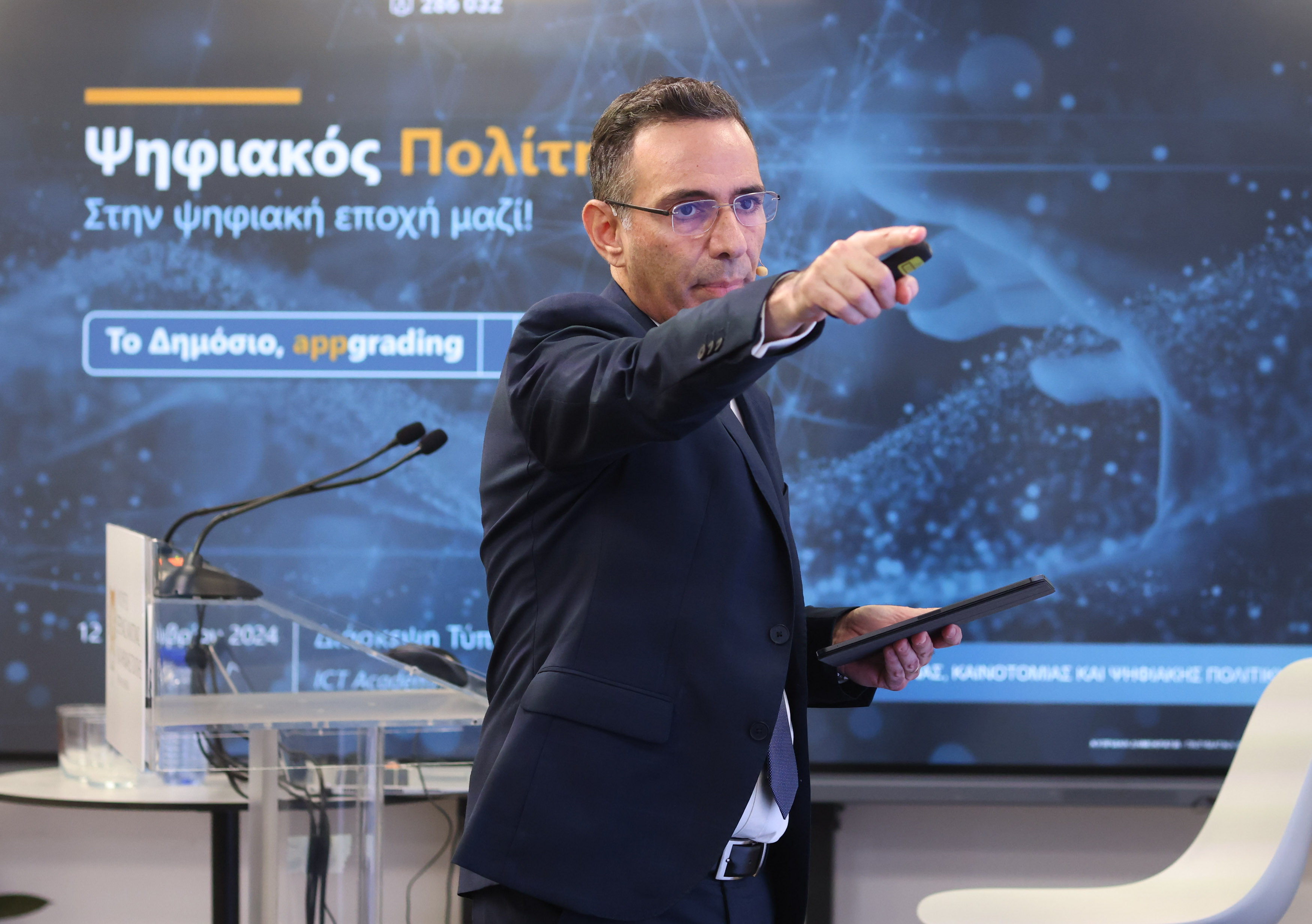Deputy Research Minister Nicodemos Damianou on Thursday rejected allegations of impropriety over the awarding of the new electronic ID (eID) contract to JCC, the company he once managed, insisting “nothing wrong was done.”
“There is nothing wrong [with what] was done, and I believe that the answers given today should be sufficient,” Damianou said after the respective audit report criticising his ministry’s decision had been discussed in the House audit committee.
The committee requested documents including the deputy ministry’s decision not to issue a voluntary announcement, the relevant Council of Ministers decision, and the audit office’s preliminary report.
Damianou added that discussions are already under way for a three-year extension of JCC’s contract.
An comprehensive audit report, issued on September 16, found that the deputy ministry approved awarding the €3.85 million project to JCC—formerly headed by Damianou—without an open tender. The report concluded there was a “special relationship” between the minister and the company.
Auditor-general Andreas Papaconstantinou, who oversaw the report, said the tender was awarded directly to JCC without considering other offers.
Although acknowledging there was no alternative provider in Cyprus, he argued that European companies could have met the requirements and should have been invited to compete.
“The government should have created competitive conditions in the market to secure better prices,” he said.
In relation to the deputy minister’s relationship to JCC, the auditor general said that the deputy ministry could have handled the project more carefully.
He also noted that the Council of Ministers lacked authority to approve the process or select the company, adding that its decision may have pressured the ministry’s tenders council.
Damianou countered that the council acted properly and that urgency was key, citing the EU’s 2026 deadline for member states to issue eIDs. “We were already late and subsidising part of the cost, and the only solution was this specific provider,” he said.
Asked why there was no voluntary announcement – allowing third parties ten days to object – Damianou said the 2020 national eID framework explicitly allowed any compliant provider to be licensed without a tender.
The framework remained open for nearly five years, he said, and no other company expressed interest.
“The right decision was made and I considered this self-evident, I believe the right thing was done for this specific market,” he said
He dismissed suggestions to use external European providers, stressing that the servers storing personal data must be located in the Republic and that few large firms were willing to open a Cyprus branch.
“The Council of Ministers [which had approved the awarding of the tender] decided and I believe it acted correctly, we had already delayed as a country in [providing the eIDs] (…) and the only solution that existed was the specific provider,” he said.
The deputy minister emphasised that nothing had been done wrongly and that there had been no irregularities in the awarding of the tender.
Regarding his leadership position at JCC, he said that this had been no secret, and that the nature of how the project came into being, including its designing with support from advisors of the Estonian government from 2017 to 2019, should have dispelled any doubts that may have arisen.
“The government should not select a provider, but should leave it open for anyone who wants to come to Cyprus to be licensed – there is nothing that refers to anything concerning me personally,” he said.
After the audit report’s release, the deputy ministry stated it had acted “with full transparency, legality and respect for the principles of fair competition,” arguing that references to a “special relationship” created a false impression and ignored the project’s history.
MPs at the committee meeting called for full transparency. Some sought further clarification, while others questioned why national legislation imposed such narrow frameworks, which they said discouraged competition. One MP claimed the project had “wasted millions of euros.”






Click here to change your cookie preferences